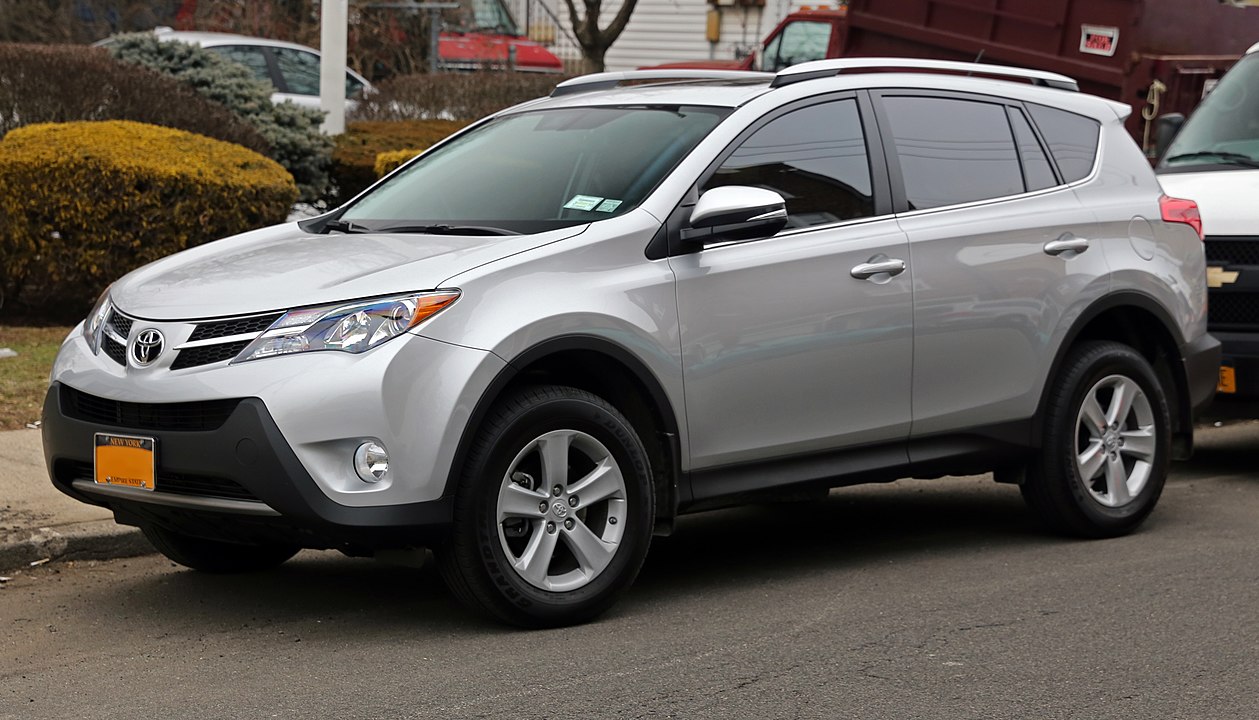
Toyota recently announced a massive safety recall affecting approximately 1,854,000 RAV4 SUVs. The recall has been issued due to concerns over a potential fire risk caused by an issue with the vehicle’s battery.
The recall specifically targets RAV4 SUVs manufactured between 2013 and 2018 in the United States.
The Underlying Issue
The core of the problem lies with certain replacement batteries used in these SUVs. Some of these replacement batteries are smaller in size than the standard ones, and if not secured correctly, they could potentially move during forceful turns. This could lead to the positive terminal of the battery coming in contact with the hold-down clamp, causing a short circuit and increasing the risk of a fire.
The Risks Involved
The movement of the improperly fitted battery could lead to a short circuit, which could escalate to a fire hazard. The potential for a fire to occur while the vehicle is in operation is a significant safety concern.
The Remedy
Toyota has assured that it is in the process of developing a remedy for the issue. The proposed solution involves replacing the battery hold-down clamp, battery tray, and positive terminal cover at no charge to the owners. The replacement parts would be improved, ensuring the issue does not reoccur.
The company said in its announcement:
“Toyota is currently preparing the remedy. When the remedy is available, Toyota dealers will replace the battery hold-down clamp, battery tray, and positive terminal cover with improved ones at no cost to owners. For all involved vehicles, Toyota will notify customers by late December 2023.”
Notification to Owners
Owners of the affected vehicles are expected to be notified by late December regarding the recall and the subsequent steps to be taken. The communication will likely detail how the issue will be addressed and what the owners need to do.
How to Check if a Vehicle is Affected
Owners of RAV4 vehicles can check if their vehicle is part of the recall by visiting Toyota.com/recall or nhtsa.gov/recalls and entering their Vehicle Identification Number (VIN) or license plate information.
By entering their Vehicle Identification Number (VIN) or license plate information, they can quickly determine if their vehicle is affected.
History of Recalls
This is not the first time Toyota has had to issue a recall for its vehicles. In August, over 160,000 Tundra trucks were recalled due to the risk of fuel leaks and fires, highlighting the need for continuous monitoring and quality checks in the automobile industry.
Effect on the Brand
While recalls are common in the automobile industry, the scale of this recall could potentially impact Toyota’s brand image.
- Resilience of Reputation: Toyota has weathered recalls and has a history of bouncing back by leveraging its reputation for quality. How quickly and effectively it addresses the current challenge will be critical in determining the long-term effect on its brand.
- Consumer Memory: The consumer market often has a short memory if a company acts swiftly to correct its missteps. The longevity of the impact on Toyota’s brand will depend on the public’s perception of the company’s actions now and in the future.
- Industry Benchmark: How Toyota deals with this recall could set a benchmark in the automotive industry, potentially impacting how recalls are managed across the board. This could either strengthen its brand leadership and brand loyalty or serve as a cautionary tale.
In summary, the recall’s effect on Toyota’s brand will depend on the company’s effectiveness and ability to communicate with affected owners and replace the faulty part promptly. By turning the recall into an opportunity to reinforce its commitment to quality and safety, Toyota has the potential to mitigate negative impacts and possibly emerge with a stronger brand.
